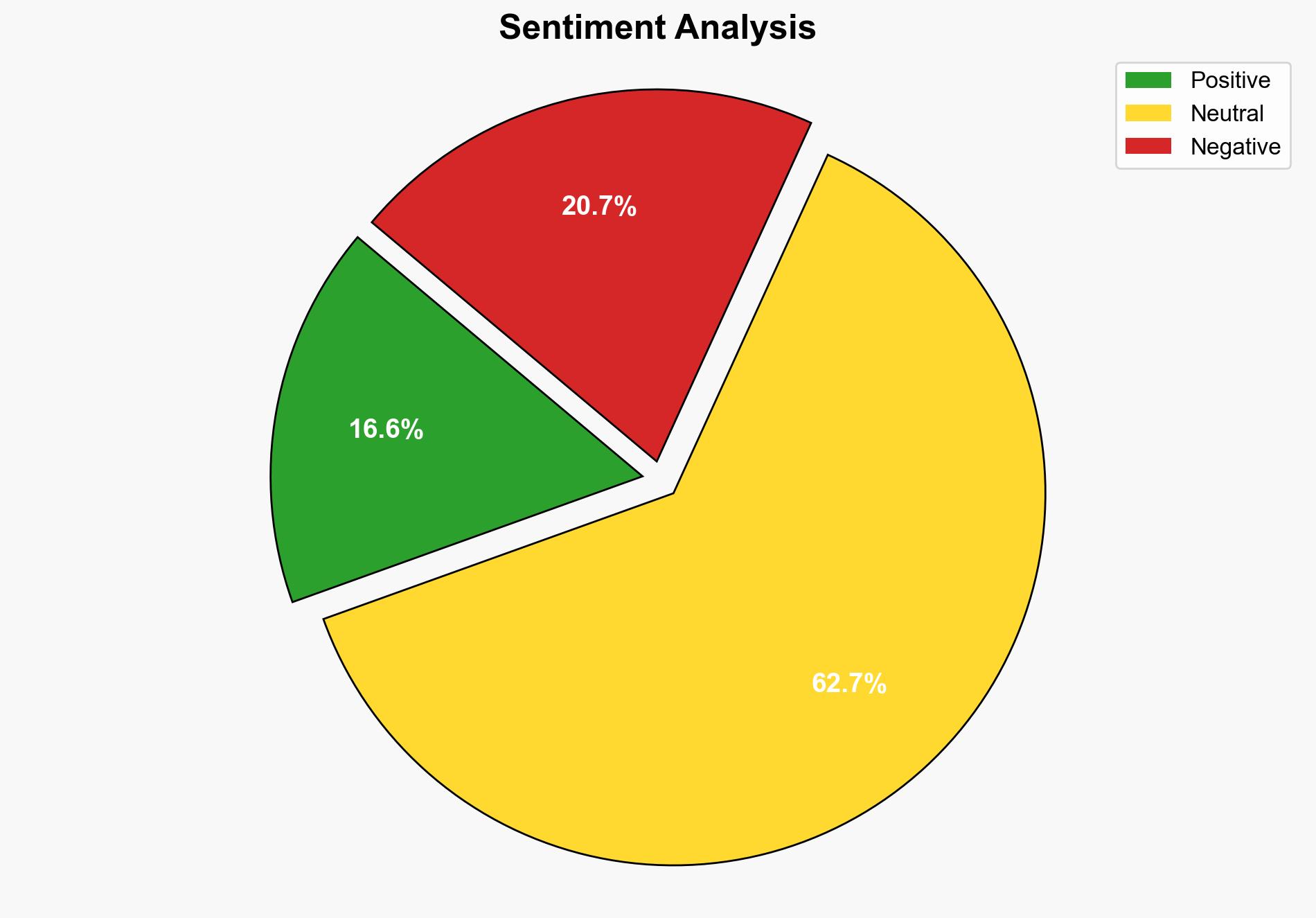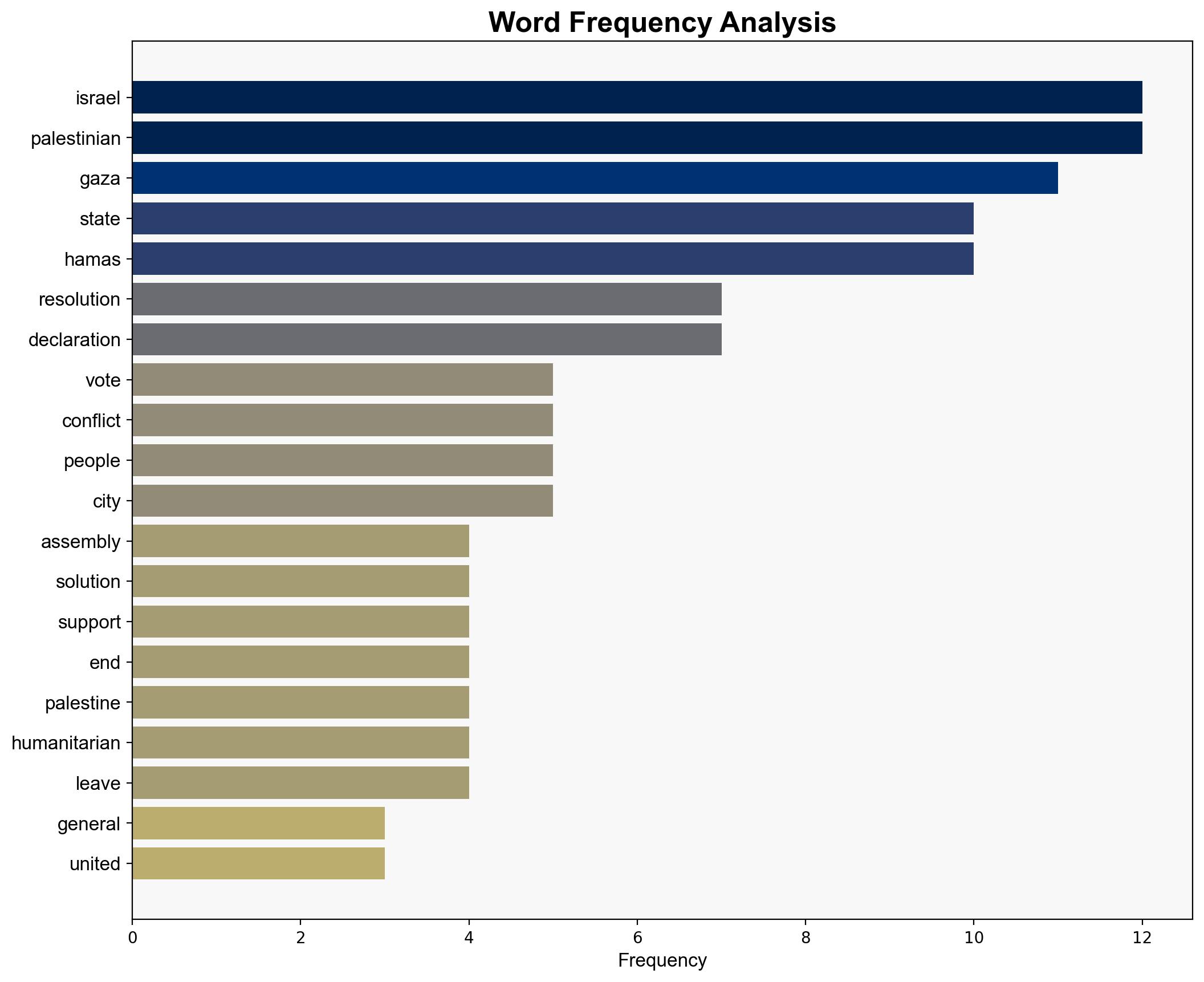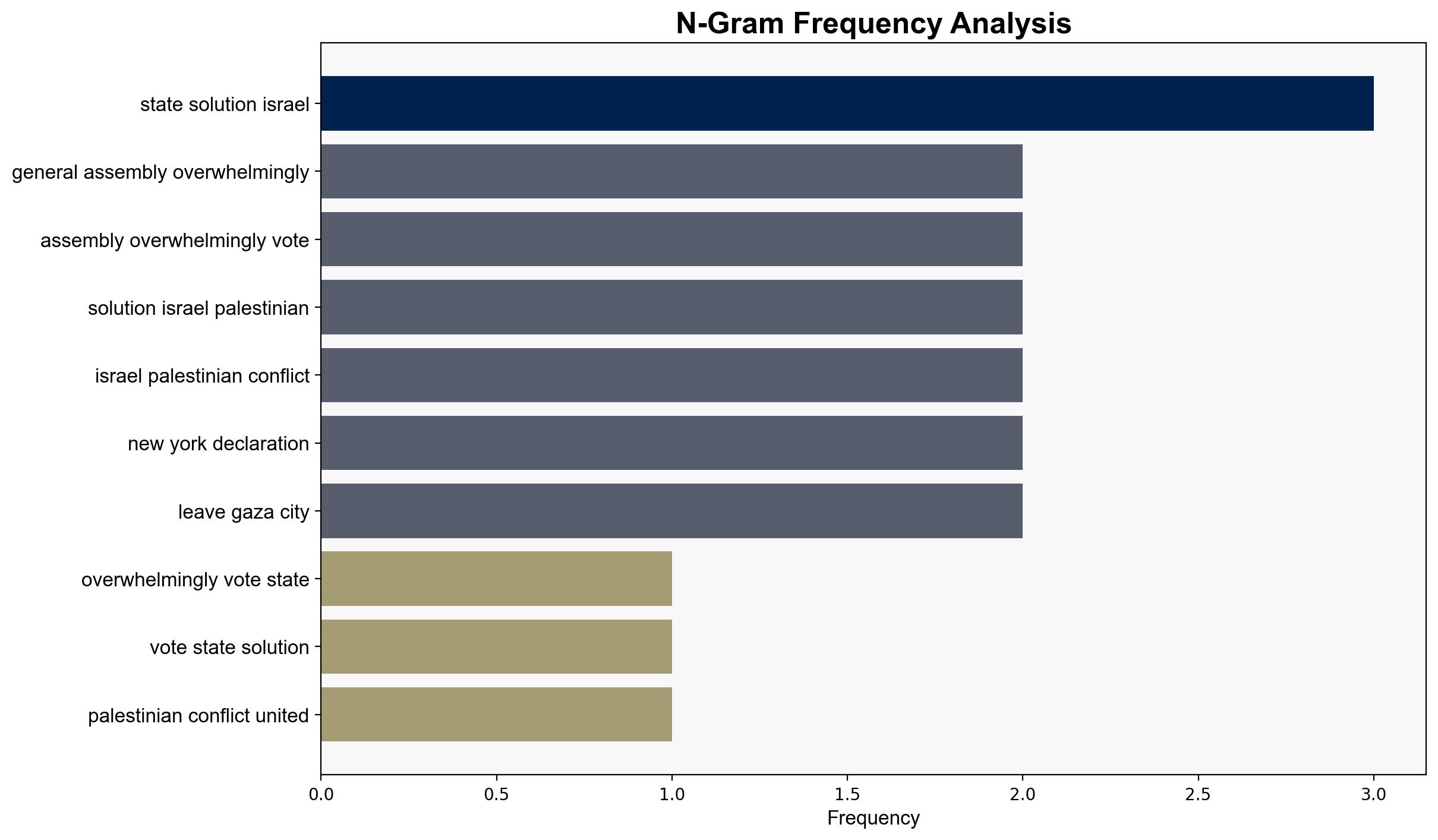UN assembly votes to back two-state solution in Israel-Palestinian conflict – CBS News
Published on: 2025-09-13
Intelligence Report: UN assembly votes to back two-state solution in Israel-Palestinian conflict – CBS News
1. BLUF (Bottom Line Up Front)
The UN General Assembly’s resolution supporting a two-state solution in the Israel-Palestinian conflict reflects international consensus but faces significant opposition from key stakeholders like Israel and the United States. The most supported hypothesis is that the resolution will have limited immediate impact due to entrenched political positions and ongoing conflict dynamics. Confidence Level: Moderate. Recommended Action: Engage in diplomatic efforts to encourage dialogue and reduce tensions, while preparing for potential humanitarian interventions.
2. Competing Hypotheses
1. **Hypothesis A**: The resolution will catalyze renewed international diplomatic efforts, leading to a revitalized peace process.
2. **Hypothesis B**: The resolution will have minimal impact on the ground due to entrenched positions and ongoing hostilities, serving primarily as a symbolic gesture.
Using the Analysis of Competing Hypotheses (ACH) 2.0, Hypothesis B is better supported. The entrenched positions of key players like Israel and the U.S., along with ongoing violence, suggest limited immediate impact.
3. Key Assumptions and Red Flags
– **Assumptions**: The resolution assumes international consensus will pressure parties into negotiations. It also assumes that a two-state solution is still viable.
– **Red Flags**: The dismissal of the resolution by Israel and the U.S. indicates potential diplomatic isolation. The ongoing violence in Gaza contradicts the resolution’s peace aspirations.
– **Blind Spots**: The resolution does not address the internal political dynamics within Israel and Palestine that may hinder progress.
4. Implications and Strategic Risks
– **Geopolitical Risks**: Increased tensions between Israel and Palestine could escalate into broader regional conflicts.
– **Humanitarian Risks**: The ongoing conflict exacerbates the humanitarian crisis in Gaza, with potential for mass displacement and civilian casualties.
– **Diplomatic Risks**: The resolution may strain relations between the UN and countries opposing it, potentially impacting future diplomatic efforts.
5. Recommendations and Outlook
- Engage with regional and international partners to facilitate dialogue between Israel and Palestine.
- Prepare for humanitarian interventions to address the crisis in Gaza.
- Scenario Projections:
- Best Case: Renewed peace talks lead to a ceasefire and gradual progress towards a two-state solution.
- Worst Case: Escalation of violence leads to broader regional conflict.
- Most Likely: Continued stalemate with intermittent violence and diplomatic efforts.
6. Key Individuals and Entities
– Benjamin Netanyahu
– Danny Danon
– Riyad Mansour
– Morgan Ortagus
7. Thematic Tags
national security threats, regional focus, geopolitical dynamics, humanitarian crisis





